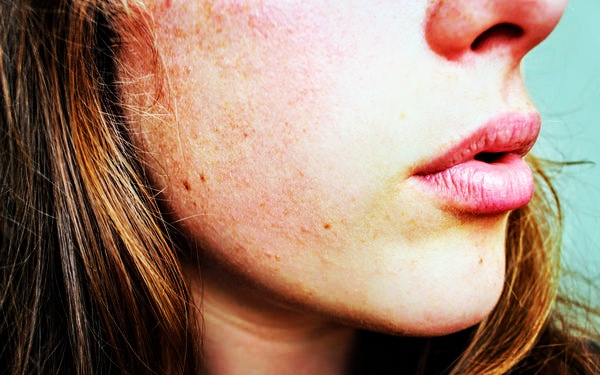15 Best tips for Winter Dry Skin

What is winter dry skin?
15 Best tips for Winter Dry Skin
Winter is a season that can wreak havoc on our skin, leaving it dry, flaky, and itchy. Fortunately, there are several remedies you can use to combat dry skin during the winter months.
Here are 15 of the best remedies for winter dry skin:
Moisturize: Moisturizing is essential during the winter months. Use a good quality moisturizer that contains ingredients like shea butter, glycerin, or hyaluronic acid to keep your skin hydrated.
Avoid hot water: Avoid taking hot showers or using hot water when washing your face, as this can strip your skin of its natural oils.
Use a humidifier: Use a humidifier in your home or office to add moisture to the air, which can help keep your skin hydrated.
Wear gloves: Wearing gloves can help protect your hands from the cold, dry air, which can cause them to become dry and cracked.
Stay hydrated: Drink plenty of water to keep your body and skin hydrated from the inside out.
Exfoliate: Exfoliate your skin once or twice a week to remove dead skin cells and promote the growth of new, healthy skin cells.
Use a face mask: Use a hydrating face mask once a week to give your skin an extra boost of moisture.
Avoid harsh products: Avoid using harsh soaps or skincare products that contain alcohol or fragrances, as these can further dry out your skin.
Use sunscreen: Just because it’s winter doesn’t mean you should skip the sunscreen. Use a broad-spectrum sunscreen with an SPF of at least 30 to protect your skin from the sun’s harmful rays.
Eat a healthy diet: Eat a diet rich in fruits, vegetables, and healthy fats, as these can help nourish your skin from the inside out.
Use natural oils: Natural oils like coconut oil, olive oil, and almond oil are great for moisturizing the skin. Apply a few drops to your skin after showering to lock in moisture.
Take shorter showers: Taking shorter showers can help prevent your skin from becoming overly dry. Try to keep your showers to 10 minutes or less.
Use a lip balm: Lips can become dry and chapped during the winter months. Use a good quality lip balm to keep them hydrated and protected.
Wear protective clothing: Wearing protective clothing, such as a scarf or hat, can help protect your skin from the cold, dry air.
Use a gentle cleanser: Use a gentle, non-foaming cleanser to wash your face. Foaming cleansers can strip your skin of its natural oils, leaving it dry and irritated.
Avoid over-exfoliating: While exfoliating is important, over-exfoliating can damage the skin’s barrier and make it more prone to dryness.
By following these tips, you can help keep your skin healthy, hydrated, and glowing all winter long.
Best Foods for Dry Skin
If you have dry skin, it’s important to nourish your body with nutrient-rich foods and natural foods that can help hydrate your skin from within. Here are some foods that are good for dry skin:
Fatty Fish: Salmon, mackerel, and other fatty fish are rich in omega-3 fatty acids, which help to hydrate and nourish the skin.
Avocado: Avocado is rich in healthy fats and vitamin E, which can help to improve skin hydration and protect it from damage.
Nuts and Seeds: Nuts and seeds like almonds, walnuts, and chia seeds are rich in healthy fats, vitamin E, and other nutrients that can help to hydrate and nourish the skin.
Olive Oil: Olive oil is a great source of healthy fats and antioxidants, which can help to moisturize and protect the skin.
Sweet Potatoes: Sweet potatoes are rich in beta-carotene, which can help to improve skin hydration and protect it from damage.
Water: Drinking plenty of water is essential for keeping the skin hydrated and healthy.
In addition to these foods, it’s also important to avoid consuming too much caffeine, alcohol, and processed foods, as these can dehydrate the skin and make dry skin worse.

Is Vaseline good for dry skin in winter?
Yes, Vaseline can be good for dry skin in winter. Vaseline is a petroleum jelly that forms a protective barrier on the skin, which helps to lock in moisture and prevent water loss. This can be especially helpful in winter when the air is dry and cold, and the skin is more prone to dryness and cracking.
Vaseline is a good option for those with very dry or sensitive skin, as it is gentle and non-irritating. It can be applied to any part of the body that is prone to dryness, such as the hands, feet, and lips.
However, it’s important to note that Vaseline is not a moisturizer and does not actually hydrate the skin. Rather, it prevents moisture loss by forming a barrier on the skin. For best results, it’s recommended to apply Vaseline after moisturizing the skin with a lotion or cream to lock in the moisture.
Why is my skin so dry even when I moisturize?
There are several reasons why your skin may still be dry even after moisturizing:
You’re not using the right moisturizer: Not all moisturizers are created equal, and some may not be suitable for your skin type or condition. If your skin is still dry even after moisturizing, it may be worth trying a different type of moisturizer or consulting with a dermatologist for recommendations.
You’re not applying enough moisturizer: If you’re not applying enough moisturizer, it may not be able to adequately hydrate your skin. Make sure to use enough product to cover your entire face and body.
You’re not applying moisturizer at the right time: It’s important to apply moisturizer immediately after showering or washing your face, while your skin is still damp. This will help to lock in moisture and prevent it from evaporating.
You’re exposed to dry air: Dry air can zap moisture from your skin, especially during the winter months. Consider using a humidifier in your home or office to add moisture to the air.
You have an underlying skin condition: Certain skin conditions, such as eczema, psoriasis, or rosacea, can cause dryness and flakiness. If you suspect you may have a skin condition, it’s important to consult with a dermatologist for proper diagnosis and treatment.
In summary, if your skin is still dry even after moisturizing, it’s important to assess your moisturizing routine and consider potential underlying factors that may be contributing to dryness
What is better than Vaseline for dry skin?
While Vaseline is a good option for dry skin, there are other products that may be more effective depending on your individual needs. Here are some alternatives to Vaseline for dry skin:
Moisturizing Creams: Moisturizing creams are thicker and more hydrating than lotions, making them a good option for those with very dry skin. Look for creams that contain ingredients such as ceramides, hyaluronic acid, or urea.
Ointments: Ointments are similar to Vaseline in that they form a protective barrier on the skin to lock in moisture. However, they may be more effective than Vaseline for very dry or cracked skin. Look for ointments that contain ingredients such as petrolatum, lanolin, or mineral oil.
Shea Butter: Shea butter is a natural ingredient that is high in fatty acids and vitamins, which can help to nourish and hydrate the skin. It can be used as a moisturizer or added to other products, such as lotions or creams.
Coconut Oil: Coconut oil is a natural moisturizer that can help to hydrate and soften the skin. It’s best used as a body moisturizer rather than a facial moisturizer, as it can be comedogenic and clog pores on the face.
Humectants: Humectants such as glycerin or propylene glycol help to attract water to the skin and can help to hydrate dry skin. Look for products that contain these ingredients, such as serums or toners.
It’s important to note that everyone’s skin is different, so it may take some trial and error to find the best product for your individual needs. Consulting with a dermatologist can also be helpful in finding the right product for your skin.
Can too much Moisturiser cause dry skin?
While it is uncommon, using too much moisturizer can potentially cause dry skin. This is because over-moisturizing can disrupt the skin’s natural barrier function and cause it to become dependent on external sources of hydration. Here are some reasons why over-moisturizing can cause dry skin:
Clogging Pores: If you use too much moisturizer, it can clog pores and prevent the skin from breathing. This can lead to breakouts and a buildup of dead skin cells, which can make the skin appear dry and dull.
Impaired Barrier Function: The skin has a natural barrier function that helps to lock in moisture and protect against environmental stressors. Over-moisturizing can disrupt this barrier function and make it difficult for the skin to retain moisture on its own.
Allergic Reactions: Using too much moisturizer can sometimes cause allergic reactions, which can lead to redness, itching, and dryness.
Underlying Skin Conditions: Over-moisturizing can also exacerbate underlying skin conditions, such as eczema or psoriasis, and make them worse.
To avoid over-moisturizing, it’s important to use the appropriate amount of moisturizer for your skin type and condition. If you have oily skin, you may only need a lightweight moisturizer, while those with very dry skin may need a thicker cream or ointment. If you’re unsure about how much moisturizer to use, start with a small amount and gradually increase as needed. Additionally, it’s important to avoid using moisturizer on areas of the skin that don’t need it, such as the T-zone on the face.

















